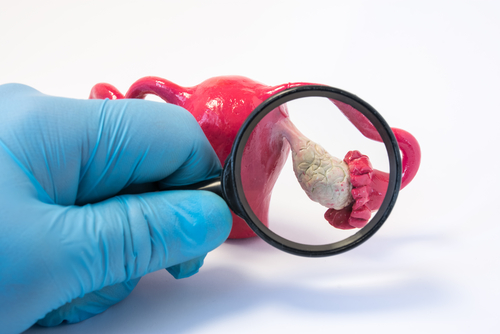Surgical treatment aimed at preserving fertility is just as effective, in terms of survival, as more aggressive surgery in treating early-stage ovarian cancer, a new study suggests.
The study, “Fertility-sparing surgery for treatment of non-epithelial ovarian cancer: Oncological and reproductive outcomes in a prospective nationwide population-based cohort study,” was published in the journal Gynecologic Oncology.
Non-epithelial ovarian cancer (NEOC) is a rare type of ovarian cancer that tends to occur in people who are relatively young. Because the ability to have children is often important for quality of life, some surgeries for NEOC try to minimize damage to the reproductive system, aiming to preserve fertility. Others are more aggressive, but whether a fertility-sparing or more aggressive surgery is more effective for the patient is unclear.
Researchers used data from the Swedish National Quality Registry for Gynecological Cancer, which included 73 women, ages 18-40, who were surgically treatment for early (stage 1) NEOC between 2008 and 2015.
Most of these women (78%) underwent fertility-sparing treatment; the others had more aggressive surgery.
No significant difference in five-year survival rates was seen between these two groups (100% for fertility-sparing and 92% for aggressive treatment). Four relapses were reported, two in each group. But since there were fewer people in the aggressive surgery group, the recurrence rate is considered to be lower for fertility-sparing treatment; although statistically, this difference was also not significant.
“The prognosis was excellent in both groups, with an overall survival of 98%,” Gry Johansen, a doctoral student at the Karolinska Institutet and a study co-author, said in a press release.
Additionally, 11 of the women who received fertility-sparing surgery have given birth post-surgery, with 13 children being born full term — all without evident complications. All of these pregnancies were conceived naturally (i.e., without such assistance as in vitro fertilization).
Another seven given fertility-sparing treatment have been referred for such medical assistance, but none have yet given birth yet.
“This is the first prospective study investigating both the safety and efficacy of fertility-sparing surgery for treatment of NEOC,” said Kenny Rodriguez-Wallberg, a study co-author and Karolinska Institutet professor.

